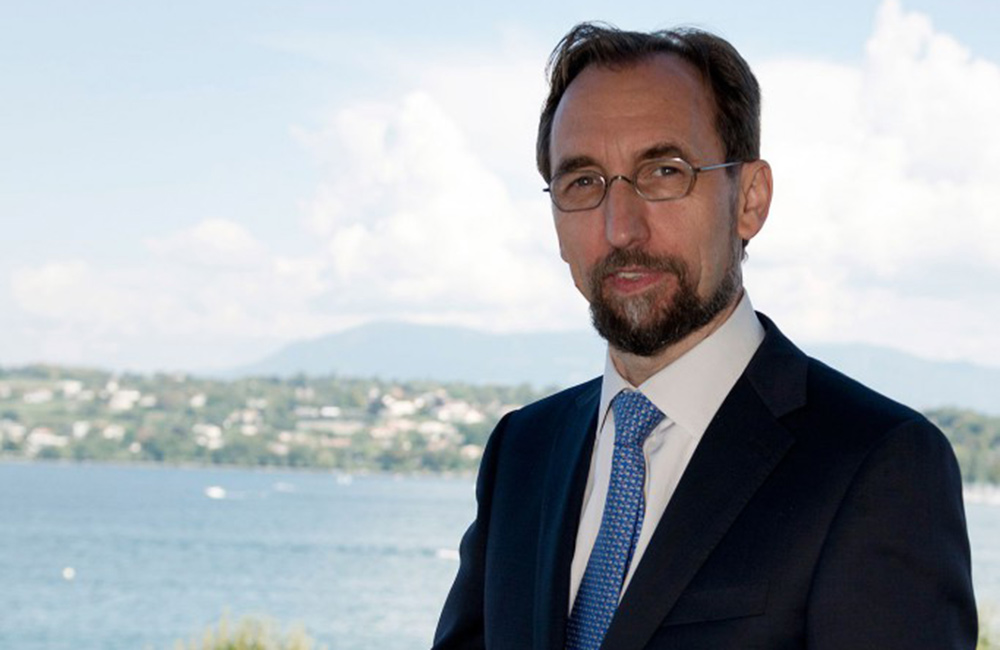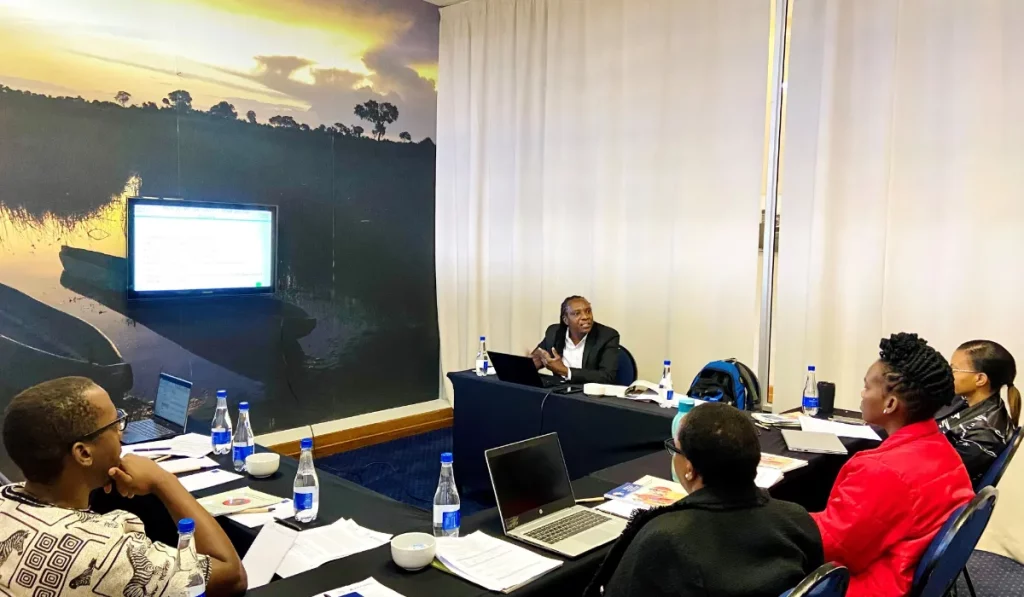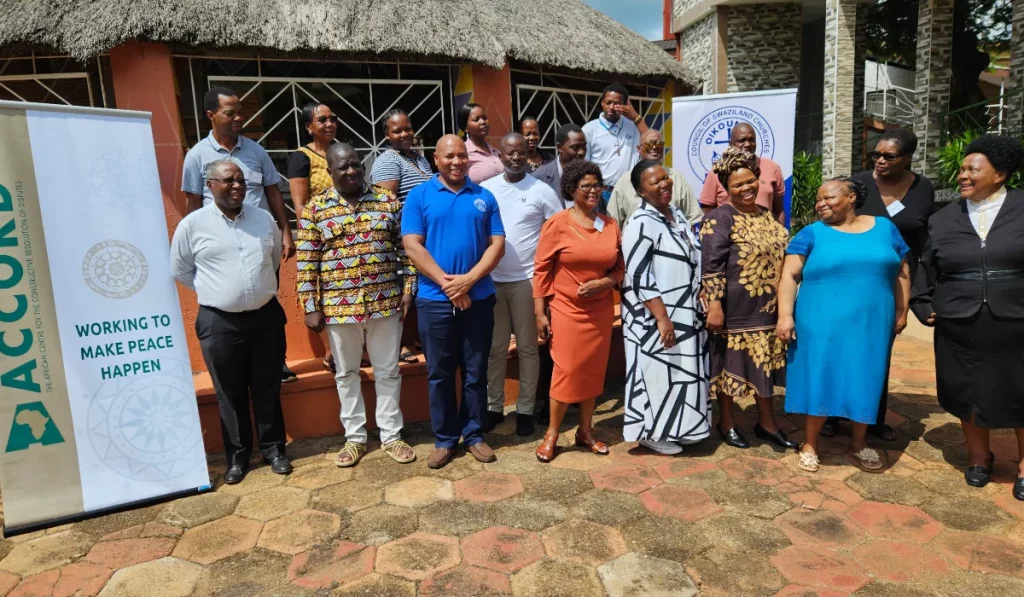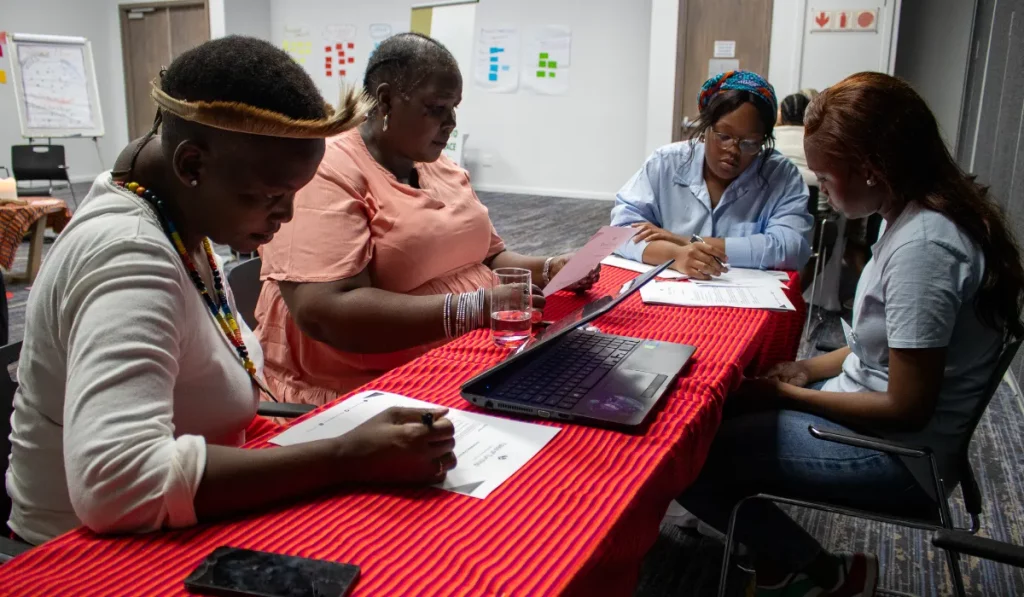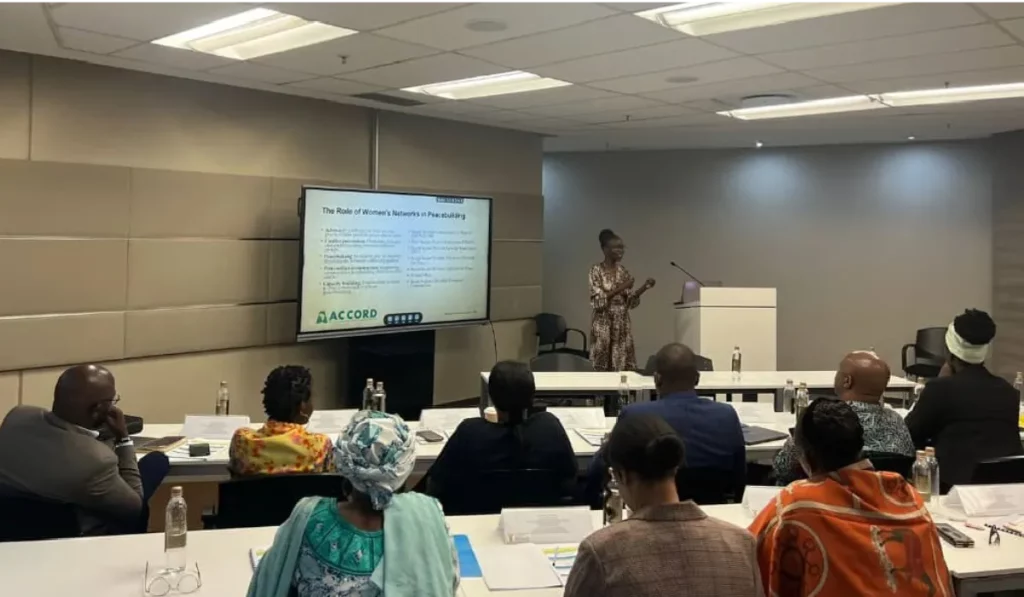The Training for Peace (TfP) Programme at ACCORD has participated in an African Union Commission (AUC) – Office of the High Commissioner for Human Rights (OHCHR) joint consultative meeting on cooperation on human rights in peace operations. The purpose of the joint consultative meeting was to exchange ideas on common areas of engagement and develop a framework of cooperation with concrete proposals on how the OHCHR and AU will relate on human rights issues in peace operations.
Noting that TfP/ACCORD’s strategic goal is to significantly improve the civilian capacity of the AU to prepare, plan, manage and monitor multi-dimensional peace operations in Africa, the Programmes participation was aimed at ensuring an immense contribution to the enhancement of the African Union’s (AU) human rights promotion in peace operations in order to improve understanding and professionalism in the conduct of peace operations on the continent.
The joint consultative meeting was held from the 1-3 October 2014 in Addis Ababa, Ethiopia, and was organised by both the AUC and OHCHR. The meeting was attended by representatives from AU Peace Support Operations Division (PSOD); the African Union Mission in Somalia (AMISOM); the International Committee of the Red Cross (ICRC); Kofi Anan International Peacekeeping Training Center (KAIPTC); EMP-Bamako; UN High Commission for Refugee (UNCHR); UN Mission in Mali (MINUSMA); UN Mission in Somalia (UNSOM); UN-AU Mission in Darfur (UNAMID); and the UN Mission in Central African Republic (MINUSCA). The meeting sought to improve coordination on human rights within peace missions based on lessons learned from Mali and Somalia. The TfP Programme was represented by Ms Olivia Victoria Davies.
During the three days deliberations, the TfP Programme contributed to the deliberations on identifying areas of complementarity and challenges between human rights components in UN peace operations and human rights observers deployed as part of AU high intensity peace operations; and also a focus on identifying entry points for cooperation and defining coordination channels between OHCHR and AUC. This is in line with the Programmes role to build sustainable capacity for the planning of peace operations in Africa. From the deliberations, it was made clear that OHCHR and the AU cannot afford to work in isolation but need to work together and make a collective contribution to protecting and promoting human rights in peace operations. A strong legal and policy basis for strengthened collaboration between the OHCHR and the AUC was emphasised, which includes, the UN-AU Ten Year Capacity Building Programme (UN-AU TYCBP) and the Memorandum of Understanding signed between OHCHR and the AUC. Coordination between the AU and the UN is vital towards the institutionalisation of human rights. It was concluded that since OHCHR has extensive experience in the field of integrating human rights in peace and security, with developed policies, practices and methodologies; well channelled OHCHR support and enhanced collaboration would result in a strengthen AU, and thus improve the quality of human rights work of the AU in peace missions.
This meeting provided ACCORD with the opportunity to engage with the relevant counterparts from other partner institutions in terms of exchanging information on human right issues in peace operations. It also provided a platform through which ACCORD further strengthened its cooperation and synergies with the partners working on conflict and peace support operations.
This initiative is in line with the Programmes goal which seek to significantly improve the civilian capacity of organisational structures within the Regional Economic Communities (RECs), AU and UN, in preparing, managing and monitoring multidimensional peacekeeping and peacebuilding operations in the high intensity environment, more particularly Africa where peacekeepers are deployed where there is no peace to keep.

